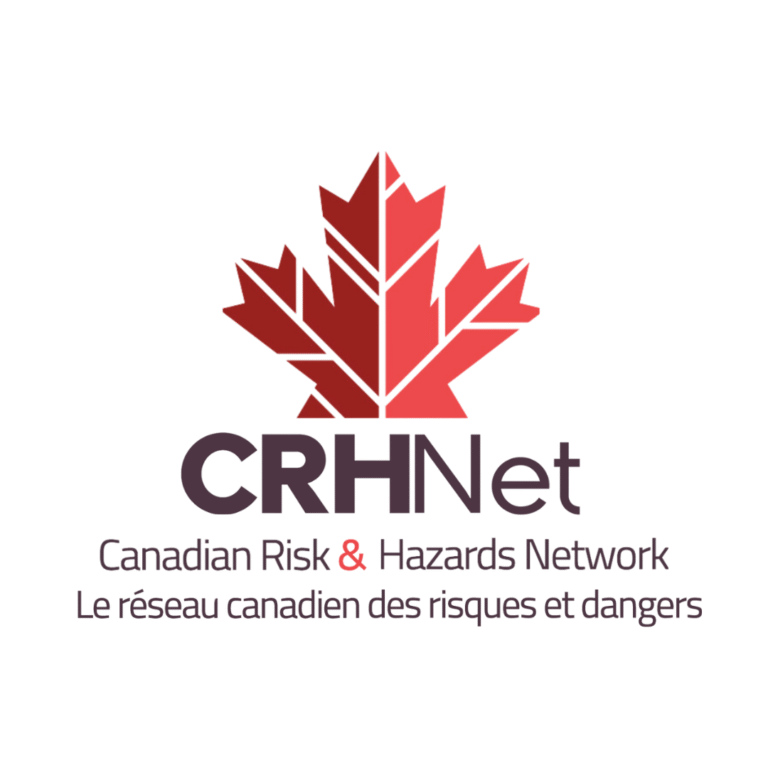
2026 Special Members Session
[Image Description: A maple leaf with dark red, and coral coloured sections, representing the thirteen provinces and territories. Text reads CRHNet Canadian Risk & Hazards
We continue to make improvements to our website and are happy to announce that members can now build out profiles for their student, professional and organizational memberships. We hope this will aid in networking with your peers and colleagues.
We have also included an events calendar that is open to all members to populate with their events.
We have update our membership benefits as well! We encourage you to take a look around and let us know what you think!
As of October 1, 2024, the Canadian Risk and Hazards Network (CRHNet) is proud to share that we will be offering complimentary memberships to all First Nations, Métis and Inuit emergency managers. Current members of CRHNet who would like to renew your membership under this new initiative, please send an email to info@crhnet.ca. We do not require ID. Please note that complimentary membership must still be renewed annually.

[Image Description: A maple leaf with dark red, and coral coloured sections, representing the thirteen provinces and territories. Text reads CRHNet Canadian Risk & Hazards
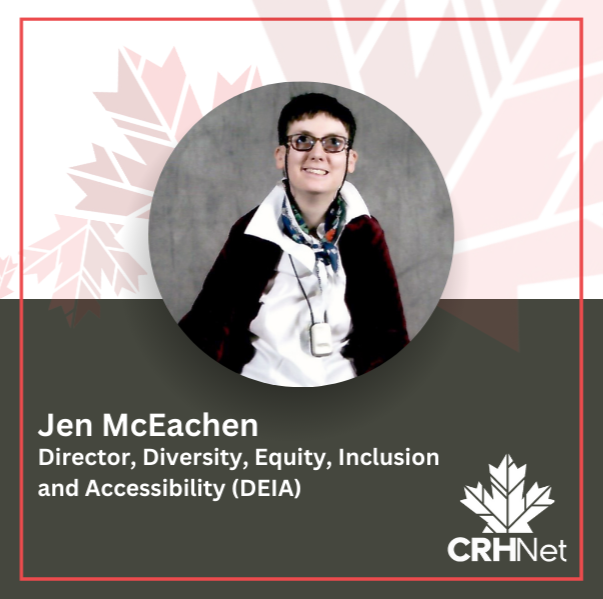
Image Description: Is a white and dark grey background with cascading maple leaves faintly in the background. There is a photo of Jen McEachen with
The Canadian Risk and Hazards Network (CRHNet) and Incident Command System (ICS) Canada are pleased to announce the signature of a Memorandum of Understanding (MOU), effective May 16, 2025.
The Canadian Risk and Hazards Network (CRHNet) invites you to apply for the 2025/26 Emerging Professionals (EP) and Professional Development (PD) Committee. We are looking
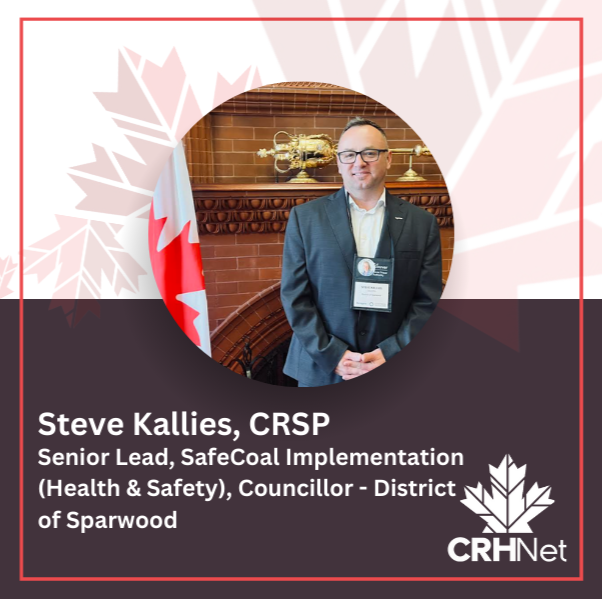
Written by: Farhad Banizaman The trajectory of Steve Kallies’s life changed at age 20 when his younger sister and two of her close friends were
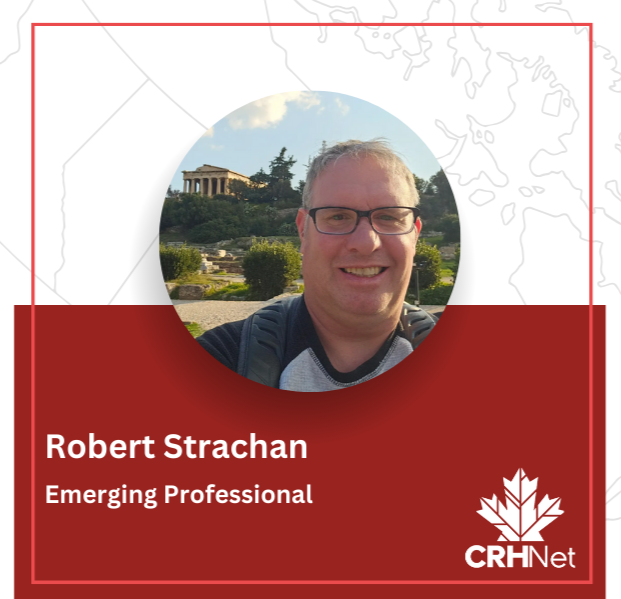
Image Description: Red and white background, with a faint outline of the map of Canada. There is a photo of Robert is wearing black glasses
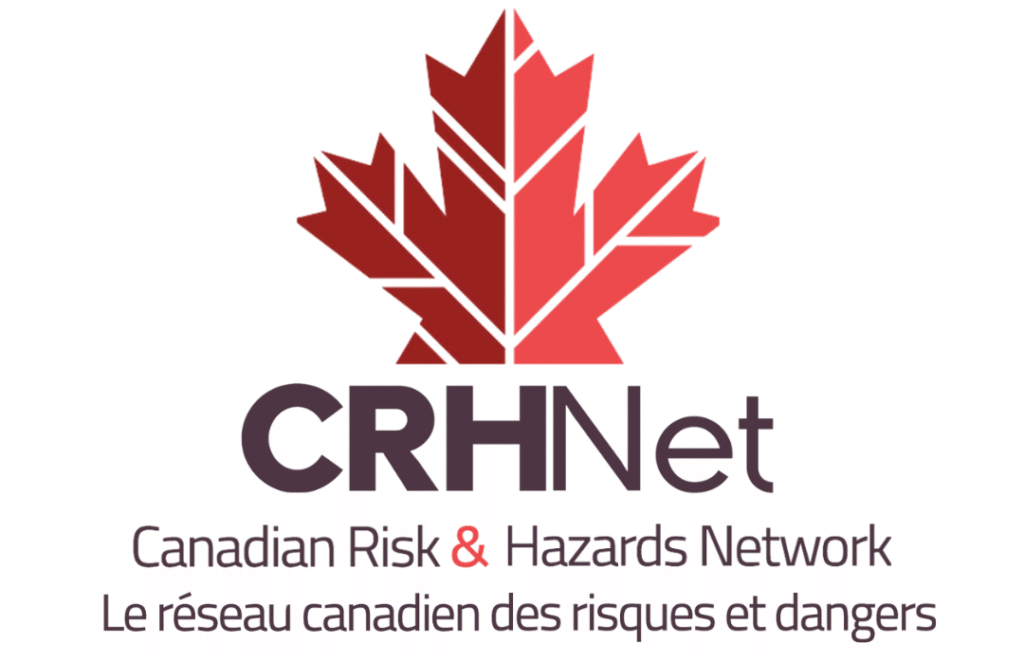
Canadian Risk and Hazards Network (CRHNet) is a not-for-profit organisation established in 2003 to promote and strengthen disaster risk reduction and emergency management in Canada. By donating to support CRHNet you are supporting our mission to create an environment for hazards research, education and emergency management practitioner communities to effectively share knowledge and innovative approaches that reduce disaster vulnerability.
Thank you for your support!
CRHNet is a non-profit organization; as such we do not have charitable organization status.
In 2015, the Sendai Framework for Disaster Risk Reduction, 2015-2030, set out four priority areas for action to reduce the impacts of disasters on mortality, communities, and the economy, and to strengthen disaster risk reduction:
As we mark the halfway point of the Sendai Framework in 2023, this issue takes stock of the progress we have made so far. In truth, we found it hard to pull together an issue that would reflect the true current state. Perhaps it was due to burnout or the ongoing disruptions we are all facing post-pandemic, or perhaps it was due to the extremely complex topic of disaster risk, but one thing was not clear: no one seems to agree. With that in mind, we narrowed our focus to the first priority, to help create a common baseline – to understand disaster risk.
Our hope is that from this baseline, we can carry on the conversation to examine the other priorities. Just as David passed on the torch to the next generation, we need to carry on the conversation and address all priorities of the Sendai Framework.
So, let’s first understand disaster risk.
[Image Description: Red background with text that reads " 2026 CRHNet Symposium, Innovation Day, Call for Poster Submissions." There are faint lightbulb icons in the background. A white band runs through the middle, with the following icons from left to right: a poster, a paint palette, a computer with the words' demo' on the screen, and an icon for immersive. The bottom-right corner features the CRHNet 2026 symposium logo. The website link is repeated in the following post.]
Innovation Day at the 2026 CRHNet Symposium: Where Ideas Meet Impact
The world is shifting fast. So is the way we understand, communicate, and act on disaster risk.
At the Canadian Risk and Hazards Network (CRHNet) 2026 Symposium, Innovation Day is your opportunity to demonstrate how bold ideas, emerging technologies, creative expression, and fresh research can shape the future of disaster risk reduction in Canada.
Part science fair.
Part tech showcase.
Part creative lab.
Innovation Day is a curated, high-energy space where posters, lightning talks, hands-on demos, art installations, immersive experiences, and workshops converge into one dynamic experience.
We are welcoming submissions from:
• Tech companies building tools, platforms, prototypes, or simulations
• Organizations applying technology in innovative ways
• Students and emerging professionals exploring early-stage research
• Researchers with models, findings, and insights ready for conversation
• Artists and designers helping us see risk, resilience, and community in new ways
If you’re presenting a poster, hosting an interactive demo, showcasing digital or physical art, creating an immersive experience, sharing emerging research, or unveiling a prototype — if it helps us imagine the future of disaster risk reduction, it belongs here.
Innovation Day is built for connection. Attendees won’t just observe — they will engage directly with creators, test ideas, ask hard questions, challenge assumptions, identify new opportunities, and spark the conversations that turn insight into action.
Submissions are open until April 1, 2026 (or until full).
Rolling acceptance. Limited space. Early submissions strongly encouraged.
The 2026 CRHNet Symposium takes place May 12–14, 2026 at the Northern Alberta Institute of Technology in Edmonton on Treaty Six territory, Amiskwaciy Waskahikan.
Under the theme “Living the Lessons: From Impact to Insight,” we recognize that the time for incremental improvement has passed. From wildfires and floods to pandemics and cascading system failures, we are living in an era of compounding risks and profound disruption. To meet this moment, we must turn impact into insight — and insight into action — to build stronger, more inclusive communities.
Ready to bring your idea to life?
For more information and how to submit, please visit our proposal page!
crhnet.ca/call-for-proposals/
#CRHNet2026 #DisasterRiskReduction #Innovation #Resilience #LivingTheLessons
... See MoreSee Less

0 CommentsComment on Facebook
[Image Description: Red and white megaphone with teal shout drawings coming from the bottom left corner pointing to the top right. On either side of this is two red triangles. The bottom right corner has the CRHNet symposium logo. Text reads CRHNet Symposium Call for Sponsors.]
The Canadian Risk and Hazards Network (CRHNet) invites organizations to become Sponsors or In-Kind Partners for the 2026 CRHNet Symposium.
Sponsorship is a meaningful way to support disaster risk reduction and emergency management in Canada while increasing your visibility with practitioners, researchers, and policymakers from across the country.
From multiple tier levels of sponsorship, in-kind sponsorship, and information on booth sales. Please visit our website to learn more and view the full sponsorship package here:
crhnet.ca/sponsorship-partnership/
... See MoreSee Less

0 CommentsComment on Facebook
[ Image Description: Text: will be repeated in the following post. White bird on top of watch that has the CRHNet symposium logo as the watch face. The white bird is holding a sales tag with a % symbol. The text boxes are the two shades of red that the CRHnet logo is made of, main background is a teal blue. Along the bottom of the graphic is a dark text box that has the www.crhnet.ca website listed in it.]
Early Bird pricing is now live for the 2026 Symposium hosted by the Canadian Risk and Hazards Network.
Join us May 12–14 in Edmonton for Living the Lessons: From Impact to Insight — three days dedicated to bold conversations, practical insights, and meaningful connections across Canada’s disaster risk reduction community.
Early Bird rates won’t last. Please secure your spot, confirm your plans, and join the conversation.
Register and explore ticket options here:
crhnet.ca/registration/
... See MoreSee Less

0 CommentsComment on Facebook
[Image Description: CRHNet event poster that features a photograph of tall modern buildings viewed from the ground looking upward, overlaid with the SafeBuildings logo and the text “Advancing community safety & well-being solutions through technology.”, in the upper right corner, with the CRHNet logo in the upper left corner. All text on image is repeated in the following write up]
TOMORROW!!!
"Minutes" Matter: Fixing the Access Gap in Emergency Response
Wednesday, February 18, 2026 @ 13:00 EST/ 11:00 MST/ 10:00 PST
Emergency response is only as effective as the conditions responders arrive to. Police, fire, and EMS are highly trained professionals who perform under extreme pressure every day. But when the built environment isn’t set up for emergency access and rapid intelligence-sharing, valuable minutes are lost before response can truly begin. In complex residential and mixed-use buildings, access delays, missing building intelligence, unclear procedures, and fragmented information-sharing can increase risk, slow stabilization, and create preventable strain across multi-agency response.
In this presentation, we will share how the Building Access Program (BAP), developed in partnership with Peel Regional Police, and deployed in live operations, turns the built environment into an operational partner in emergency readiness. By standardizing verified access procedures and response-critical building information, BAP reduces friction at the point of entry and improves coordination across police, fire, EMS, and property stakeholders during dynamic incidents, and beyond, at no cost to building owners.
While BAP was designed to fix real, well-documented response barriers that contribute to negative outcomes, its biggest advantage is what it enables long-term: a secure, trusted method of information-sharing that turns the community and the built environment into active, ongoing contributors into community safety and wellbeing. This same channel strengthens prevention, improves emergency management readiness, and supports specialized policing and broader public safety operations. The result is a scalable community capability with measurable gains, minutes saved, risk reduced, and better outcomes for responders, building owners and occupants alike.
Register here: crhnet.ca/#!event/2026/2/18/crhnet-ep-committee-presents-quot-minutes-quot-matter-fixing-the-acce...
... See MoreSee Less

0 CommentsComment on Facebook
[Image Description: Teal background with text that reads " 2026 CRHNet Symposium, Innovation Day, Call for Poster Submissions." There are faint lightbulb icons in the background. A white band runs through the middle, with the following icons from left to right: a poster, a paint palette, a computer with the words' demo' on the screen, and an icon for immersive. The bottom-right corner features the CRHNet 2026 symposium logo. The website link is repeated in the following post.]
Innovation Day at the 2026 CRHNet Symposium: Where Ideas Meet Impact
The world is shifting fast. So is the way we understand, communicate, and act on disaster risk.
At the Canadian Risk and Hazards Network (CRHNet) 2026 Symposium, Innovation Day is your opportunity to demonstrate how bold ideas, emerging technologies, creative expression, and fresh research can shape the future of disaster risk reduction in Canada.
Part science fair.
Part tech showcase.
Part creative lab.
Innovation Day is a curated, high-energy space where posters, lightning talks, hands-on demos, art installations, immersive experiences, and workshops converge into one dynamic experience.
We are welcoming submissions from:
• Tech companies building tools, platforms, prototypes, or simulations
• Organizations applying technology in innovative ways
• Students and emerging professionals exploring early-stage research
• Researchers with models, findings, and insights ready for conversation
• Artists and designers helping us see risk, resilience, and community in new ways
If you’re presenting a poster, hosting an interactive demo, showcasing digital or physical art, creating an immersive experience, sharing emerging research, or unveiling a prototype — if it helps us imagine the future of disaster risk reduction, it belongs here.
Innovation Day is built for connection. Attendees won’t just observe — they will engage directly with creators, test ideas, ask hard questions, challenge assumptions, identify new opportunities, and spark the conversations that turn insight into action.
Submissions are open until April 1, 2026 (or until full).
Rolling acceptance. Limited space. Early submissions strongly encouraged.
The 2026 CRHNet Symposium takes place May 12–14, 2026 at the Northern Alberta Institute of Technology in Edmonton on Treaty Six territory, Amiskwaciy Waskahikan.
Under the theme “Living the Lessons: From Impact to Insight,” we recognize that the time for incremental improvement has passed. From wildfires and floods to pandemics and cascading system failures, we are living in an era of compounding risks and profound disruption. To meet this moment, we must turn impact into insight — and insight into action — to build stronger, more inclusive communities.
Ready to bring your idea to life?
For more information and how to submit, please visit our proposal page!
crhnet.ca/call-for-proposals/
#CRHNet2026 #DisasterRiskReduction #Innovation #Resilience #LivingTheLessons
... See MoreSee Less

0 CommentsComment on Facebook